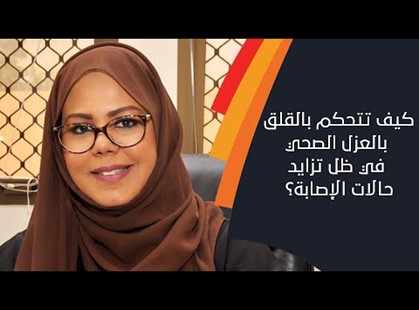
Introduction
Mental health has been a central pillar of the COVID-19 response in Oman and many efforts have been made to mitigate the psychosocial consequences of the pandemic such as isolation, boredom, fear, and stigmatization. Such efforts include remote psychosocial support services, and the development of guidance on managing mental health conditions during the COVID-19 pandemic by the Mental Health Section at the Ministry of Health.
Remote psychosocial support services
Telephonic psychosocial support services for the general public and healthcare workers were initiated by a number of mental health facilities in the public and private sectors. Patients in quarantine facilities and care providers working in these facilities were also offered psychological consultations by phone.
Whispers of Serenity Clinic established the psychological awareness campaign “Not Alone”. The campaign includes a hotline for supporting people experiencing depression, anxiety, suicidal thoughts, violence, and bullying. It also allows individuals in Oman or abroad to send anonymous WhatsApp messages to receive support, which is available in six languages: Arabic, English, Urdu, Italian, Tagalog and Persian. The service is available during these hours: 11:00 a.m. to 1:00 p.m., and 5:00 p.m. to 7:00 p.m.
The Psychology of Youth Volunteering Team developed an online psychological support platform “Tataman”. The service was created with support from the National Youth Commission and aims to provide relief from psychological distress. Users can access the psychological support chat through the website. Consultations are provided by a team of 17 psychologists. Additionally, “Tataman” offers educational resources on common psychological problems and a directory of available mental health services in the country. There is also a self-help toolbox and resources for parents and caregivers. The platform started its work on 24 April.
Oman created an Arabic-language smartphone application for meditation. The app “Nafas” contains guided meditation and audio tools for relaxation, sleep, anxiety, and stress reduction. The application also provides content tailored to the COVID-19 pandemic.
Education, awareness-raising and mental health service promotion
A number of awareness messages, brochures and short videos directed at the public and healthcare providers, in Arabic and English, were developed jointly by mental health professionals working in the public and private sectors, led by the Mental Health Section of the Non-communicable Disease Department. These messages were posted on the Ministry of Health’s electronic gate in coordination with the Department of Health Education at the Ministry of Health, and were also shared through their social media platforms in all the governorates.
Several bodies, such as the Omani Ministry of Health and Al-Masarra Psychiatric Hospital have used social media platforms for mental health promotion and sharing educational messages. Additionally, the Ministry of Health and the Ministry of Media are using mass media to provide daily updates on COVID-19. They are broadcasting radio and video advice from health experts in multiple languages focusing on psychological support and mental health issues.
Service continuity
Psychiatric services are available in 10 out of the 11 governorates in Oman, and adjustments have been made to usual service delivery as part of the COVID-19 response led by the Ministry of Health. For example, out-patient department services in all health facilities were reduced and re-arranged to manage emergency cases, as well as those requiring close follow-up to stabilize their conditions. Routine cases were given a 2 to 3 month supply of medications. Psychiatric clinics provided a list of their phone numbers to primary health care centers so that they can share these numbers with patients requiring mental health and psychosocial support services thus facilitating referrals and minimizing patient exposure.
Conclusion
Oman has managed to develop a comprehensive set of remote mental health and psychosocial support services to respond to the public’s varying needs. Public awareness and education on mental health and psychosocial support were prioritized. Both the public and private sectors have utilized virtual technology and social networks to ensure continuity of care throughout the pandemic. Still, guidance on preventing the interruption of care is needed for this, and potential other crises in the future.
Related links
Al-Masarra Psychiatric Hospital
Oman Observer: This holiday stay at home, spend quality time with family (article)
Psychology of Youth Volunteering Team: Psychological support service – COVID-19 response initiative
The Week: Protect yourself (article)


